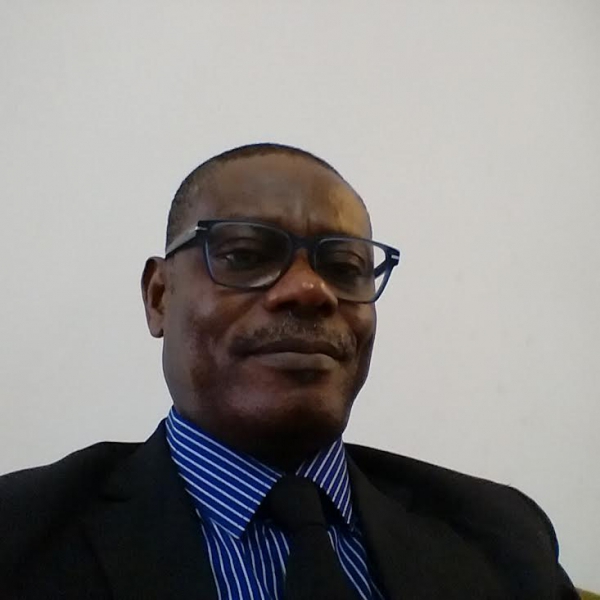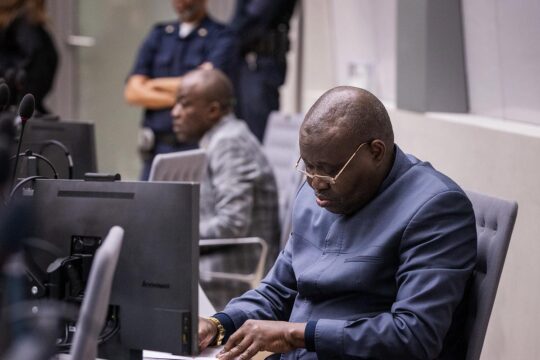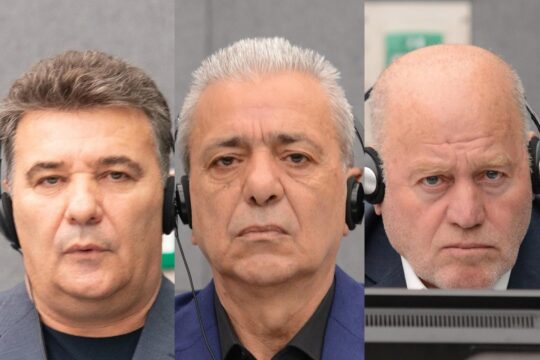In a report published this week in Bangui, the United Nations documents 620 cases of grave human rights violations committed in the Central African Republic from 2003 to 2015. They include sexual violence, acts of torture in detention centres, extrajudicial executions, violence of an ethnic or religious nature, recruitment of child soldiers, attacks on aid workers and UN peacekeepers.
The report’s authors make a series of recommendations, notably to the Prosecutor of the Special Criminal Court (SCC), a hybrid court being set up within the CAR’s judicial system to bring to justice those most responsible for serious crimes committed in the country since January 1, 2003. Given the enormity of its task, the large number of crimes committed and of suspected perpetrators, the report recommends that the SCC Prosecutor draw up and make public his prosecution strategy before starting investigations, so as to ensure transparency and impartiality.
The report concludes that a big majority of the 620 cases documented constitute serious violations of international human rights and humanitarian law and could constitute war crimes and/or crimes against humanity.
This “mapping report” stresses in its summary the need for the office of the SCC Prosecutor to adopt a prosecution strategy taking into account issues of complementarity with the International Criminal Court, which is also investigating serious crimes committed in the CAR since 2012.
This strategy should be “communicated to the public before starting investigations, so as to ensure transparent operations of the SCC and manage the expectations of the public with regard to the Court”, say the report’s authors.
According to the UN report, adopting this strategy is necessary because of “the high number and specific nature of the crimes committed since January 1, 2003, which require careful selection of events, cases and specific crimes that are to be the subject of prosecutions”. Putting a public strategy in place will help the Prosecutor manage expected pressure from political, ethnic and religious groups, it says. The prior adoption of such a strategy will also help the Prosecutor to proceed with a well thought-out selection of priority cases allowing the best use of the limited resources available for the prosecutions.
Including a gender perspective
The report advises the Prosecutor to concentrate on cases involving the most serious crimes, those that are most significant from a historical perspective or those that are most important to respond to victims’ need for justice.
Crimes committed against women, children or other especially vulnerable groups should also be given priority in this strategy, according to the report’s recommendations. With regard to crimes against women, the report says it is indispensable to “train the staff of the Special Court on sexual violence in conflict and ways to integrate a gender perspective into the daily work of the Court”. According to the authors, that requires organizing compulsory training by professionals highly experienced in the field of sexual violence in conflict.
The Prosecutor must also take into account the gravity of suspected responsibility for crimes, the rank of suspects or their alleged role in the commission of crimes, as well as the possibilities of locating and arresting them, the report says.
The report also urges the Prosecutor to pay special attention in his strategy to “specific waves of violence such as the scorched earth campaign led by government troops during the armed conflict in the northwest of the country from 2006”. “These incidents are of particular concern,” it says, “because of the scale of attacks on civilian property, the flagrant disregard for distinguishing civilians from combatants as prescribed by international humanitarian law, and the principle of respect for humanity which requires that parties to war must avoid unnecessary suffering of the civilian population.”
Religious persecution
The report's authors also expressed much concern about attacks targeting people because of their ethnic or religious belonging. They thus encourage the Prosecutor to investigate “symbolic cases of forced displacement of populations, restrictions on freedom of movement, especially for people confined in enclaves”. Because, says the report, persecution based on religion is an extreme violation linked to the conflict and has left deep scars on Central African society.
Finally, the report also mentions attacks on peacekeepers and aid workers. “These are grave violations in themselves,” says the UN report. “In addition, the fact that they are continuing in all impunity undermines efforts to secure the population and deliver humanitarian aid.”
Putting such a strategy in place would be a major step in fighting the widespread impunity that has marked the history of the Central African Republic,” the report concludes.






